The dog owners are also called the dog parents. So, they must have a proper dog vaccination schedule to prevent their beloved puppy from viral and infectious diseases. Failing to do so can be fatal, as your puppy’s immune system is not fully developed. The puppy vaccination chart and the dog vaccination timeline are medically designed for prompt vaccination. This builds strong immunity in your dog to protect it from multiple life-threatening diseases.
A medically prompt dog vaccination schedule helps safeguard against serious diseases. In the long run, it contributes to the healthy and flourishing life of your pet. This blog provides you a thorough information regarding the dog vaccination schedule for both adult dogs and puppies.
Importance of a Dog Vaccination Schedule
Vaccinations are designed to improve the immune system of your dog to diseases and viruses. This approach will in turn, stimulate the immune system to produce antibodies to fight disease-causing organisms. An efficient dog vaccination schedule builds immunity to destroy microbes before they cause disease.
The dog parents must devise a puppy vaccination chart or a dog vaccine timeline for timely vaccination. This benefits in the long run in the form of good health and well-being.
Learn More at our Pet Health Blogs
Vaccination is like your dog’s armor against the various bad organisms that can harm it. This way, your dog is not only protected from diseases but also a herd immunity gets established in the pet population, which ultimately leads to a reduced spread of infections between one dog to another. Not taking it seriously or ignoring vaccination by somehow or other will make your dog vulnerable and also put other dogs at risk.
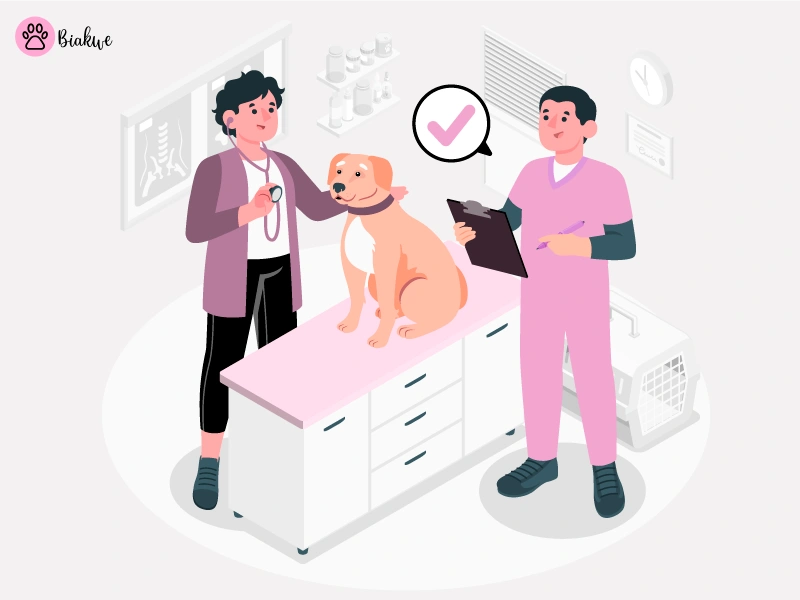
Importance of Puppy Vaccination Chart
The first few months of a newborn puppy are very crucial. At an early age, the puppy’s immune system is not strong enough to defend against infectious diseases. Right after their birth, the first milk feed they get from their mothers is the immunity-boosting feed. This maternal immunity is greatly helpful in building immunity. But it gradually declines with time.
Visit: Natural Pain Relief for Dogs: Safe Alternatives to Medication
This is the right time for the vaccination. If vaccination is not done properly and timely manner, your puppy’s health will be vulnerable. You must have a puppy vaccination chart, properly devised by a veterinarian after a proper medical check-up. This typical vaccination chart contains a series of vaccination doses at specified intervals or specific to age.
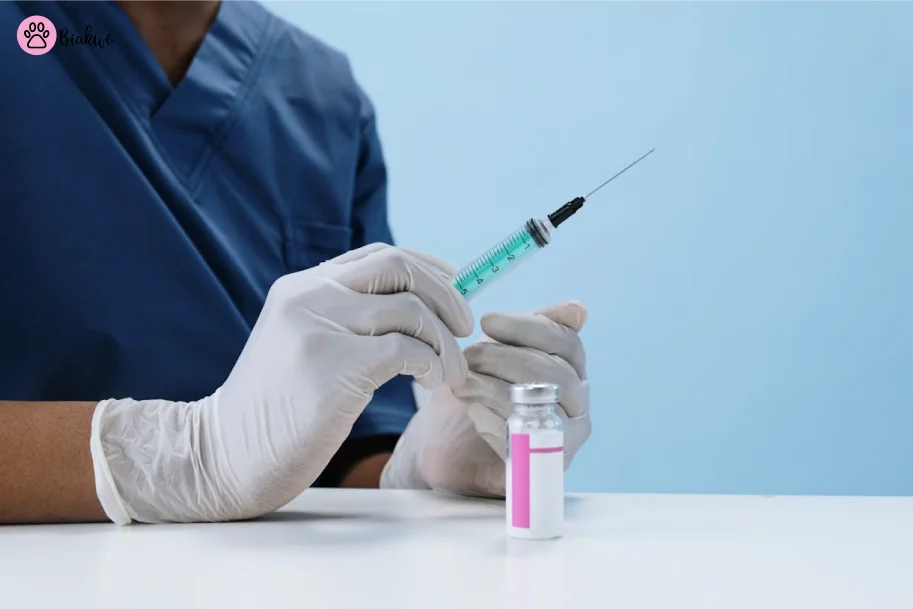
Factors Influencing Dog Vaccination
Certain factors that influence the dog vaccination schedule are:
-
Age:
Vaccination varies with age. As the puppy ages, vaccination needs vary.
-
Lifestyle:
Puppies or dogs that are in close contact with other dogs may need additional vaccinations.
-
Health Status:
Dogs having specific health conditions need special vaccines.
-
Geographical Locations:
Some areas have specific vaccine requirements depending on the prevalence of multiple diseases.
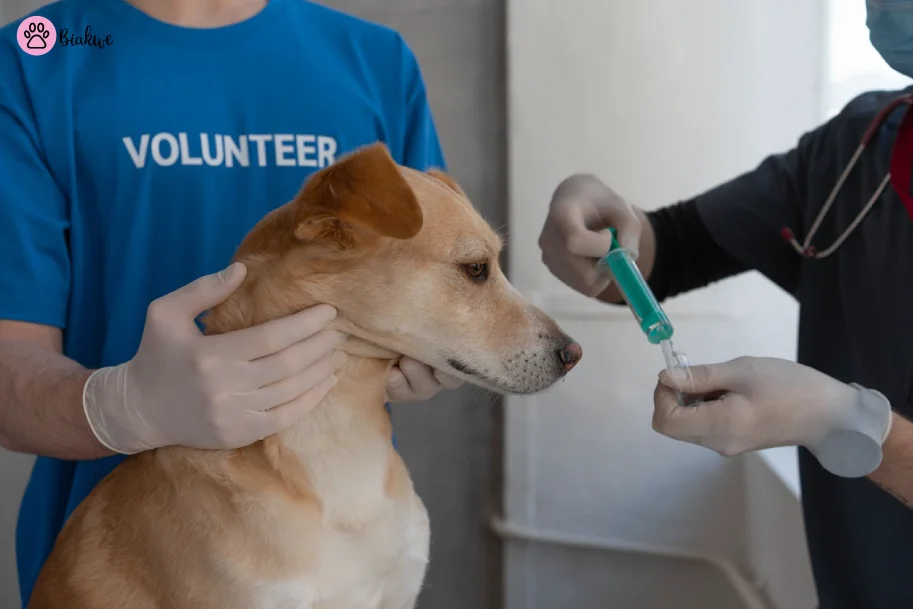
Puppy Vaccination Chart for Optimal Health
The puppy vaccination chart must be devised by a qualified veterinarian. He better understands the vaccination concerning breed, age, location, and other health conditions. Puppy’s first vaccination is due at the age of 6 – 8 weeks. Followed by booster doses every 2 – 4 weeks till the age of 4 months. Adult dogs generally require booster dose every 1 – 3 years.
Discover: Best Natural Antibiotics for Dogs: Safe Alternatives to Medication
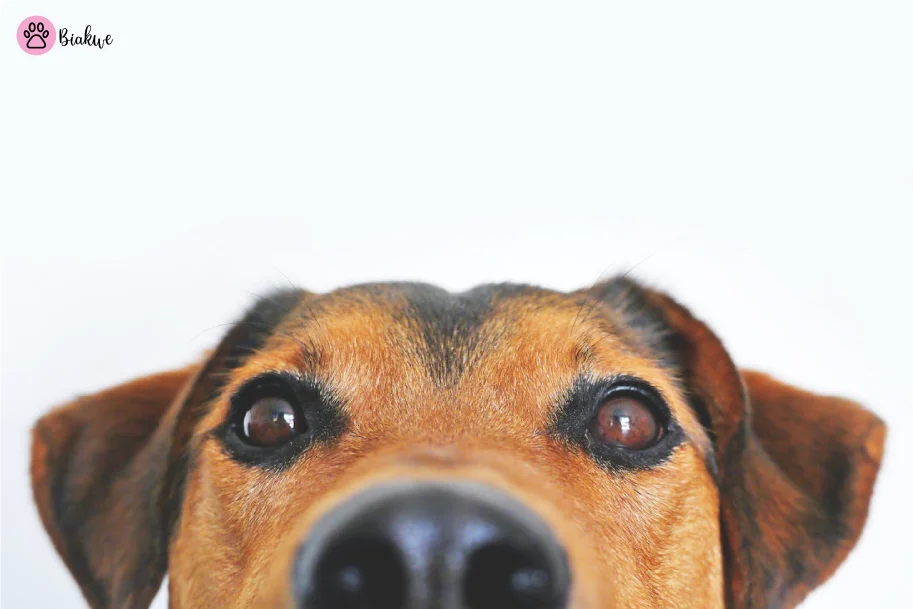
In general, the puppy vaccination chart is as follows:
6 – 10 weeks: DHPP, Kennel cough
11 – 14 weeks: DHPP, Leptospirosis, Canine Influenza, Lyme disease, Rabies.
15 – 16 weeks: DHPP, Leptospirosis, Canine Influenza, Lyme disease, Rabies. (2nd dose)
*DHPP (Distemper, Hepatitis, Parvovirus, Parainfluenza)
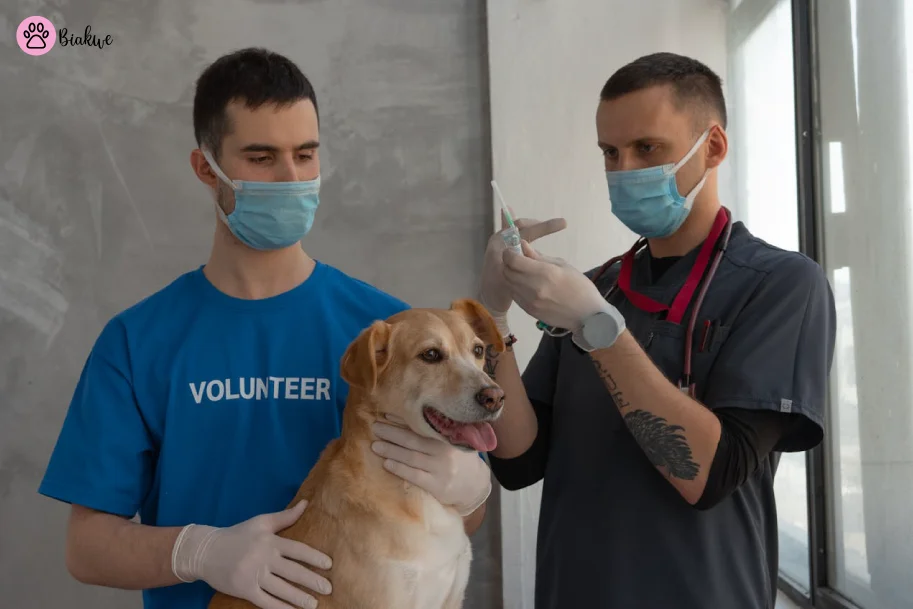
Below is the puppy vaccination chart in detail:
The span of a puppy vaccination continues for a few months. And booster shots ensure continued immunity for a long time.
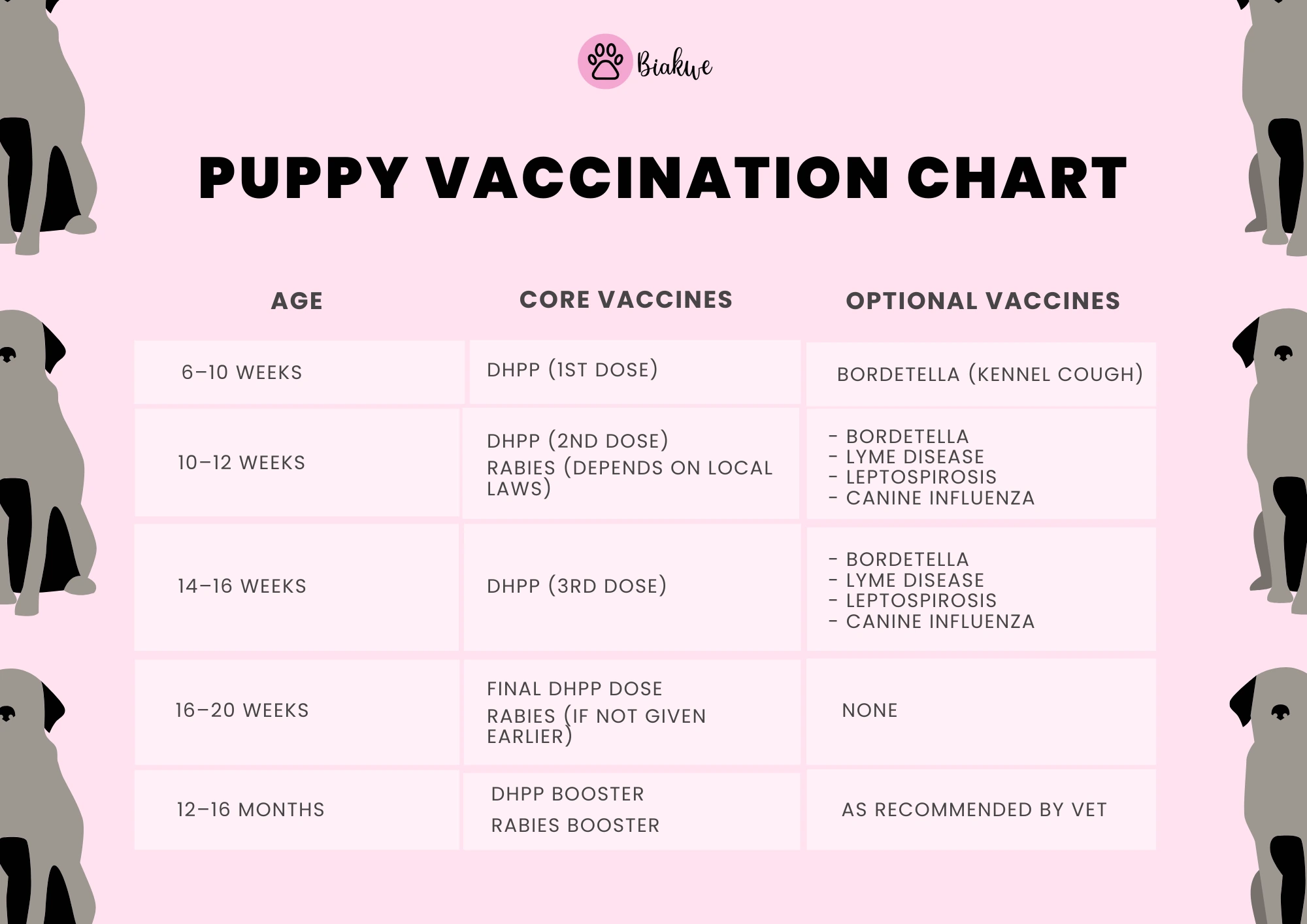
6 – 10 Weeks
- First DHPP vaccine to protect against Distemper, Hepatitis, Parvovirus, and Parainfluenza.
- Optional Bordetella Vaccine for puppies living with other pets.
10 – 12 Weeks
- Second DHPP vaccine as an immune booster.
- Rabies Vaccine starts at week 12 and also depends on local regulations.
- Optional Vaccines for Bordetella, Lyme disease, Leptospirosis, and influenza
14 – 16 Weeks
- Third DHPP vaccine for immunity strengthening.
- Optional Vaccines for Bordetella, Lyme disease, Leptospirosis, and influenza
16 – 20 Weeks
- The final DHPP Vaccine completes the initial series.
- Rabies Vaccine if not given earlier.
12 – 16 Months
- Booster shots of DHPP and Rabies
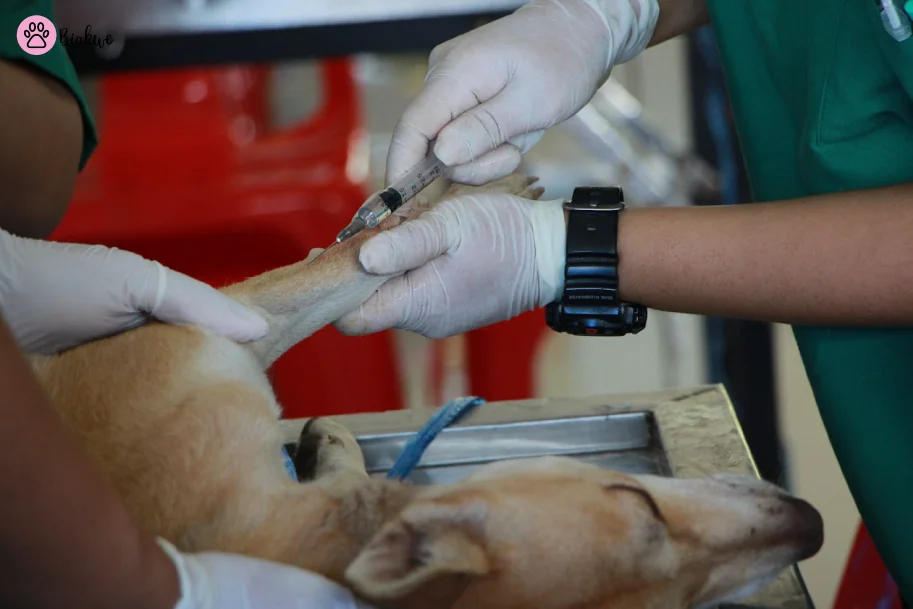
Dog Vaccination Schedule
Once the puppy’s vaccination is completed successfully under the supervision of a veterinarian, now comes the next stage of the adult dog vaccination timeline. Here, the dogs are given booster shots to maintain and build immunity ona long-term basis.
- DHPP Booster is given every 1 – 3 years, depending on the local regulations and the veterinarian’s recommendations.
- Rabies Booster shot is also administered every 1 – 3 years.
- Optional Vaccines for Bordetella, Lyme disease, Leptospirosis, and influenza. Booster doses are recommended depending on the risk.
General Classification of Adult Dog Vaccination
In general, for the convenience and understanding of the dog parents, the vaccination process is classified into two simple categories:
- Core Adult Dog Vaccination (Booster shots)
- DHPP Booster
- Rabies Booster
- Non-Core Adult Dog Vaccination (Booster as Needed)
- Bordetella
- Lyme Disease
- Leptospirosis
- Influenza
Explore: Top Benefits Of Apple Cider Vinegar For Dogs
Conclusion
Your dog’s health should be made a priority through vaccination, that is the opinion of the majority. You must still talk to your veterinarian about your dog’s vaccination, and make sure to keep a positive relationship with your dog. The owner of a pet who has the responsibility of ensuring that the dog vaccination timeline is up-to-date or a puppy vaccination chart has a positive impact.
This vaccination process is the assurance of good health for your dog and also the health safety of all family members. Vaccination is the foundation of the well-being of your dog. A sick or weak dog poses a risk to itself and the community and also violates health regulations.
